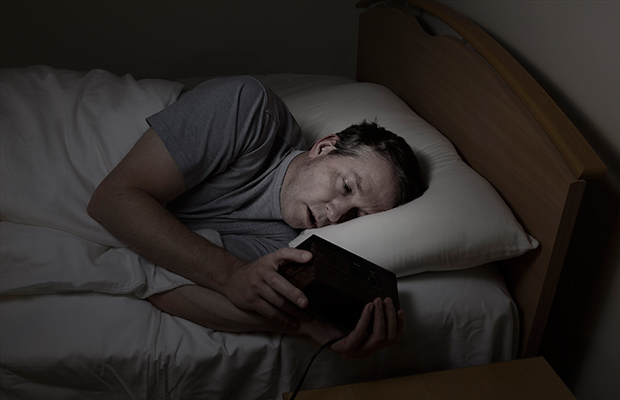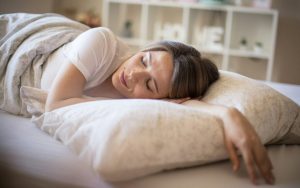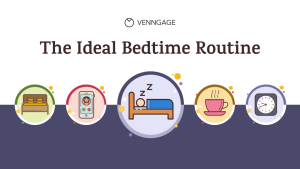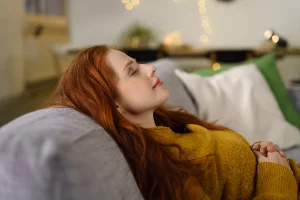In a world full of technology, from early alarms to scrolling through screens at night, falling asleep without it can be incredibly difficult. Many people struggle to fall asleep, reaching for their phones or other smart devices to “wind down,” only to wake up hours later still groggy and lethargic. When it comes to sleep, technology often does more harm than good. The good news is that you don’t need expensive apps or high-tech sleep aids to fall asleep quickly and easily. After reading this article, you won’t need any tools or tricks to fall asleep quickly. All you need is your body, your mind, and a few simple habits.
Develop a calming bedtime routine
Your body functions best when it’s in a flow and a regular routine. When you have a good sleep routine, your brain knows it’s time to relax. An hour before bed, start with calm, relaxing activities like reading, writing in a notebook, or stretching. Turn off the lights, brush your teeth, and put on cozy pajamas. When this becomes a habit, your brain will start to associate these signals with sleep, making it easier and faster to fall asleep. Don’t rush; treat your bedtime routine as a daily act of self-care.
Stay away from screens for at least an hour before bed
The blue light from phones, TVs, and computers is a major reason why some people have trouble falling asleep. Melatonin is the hormone that makes you sleepy, and blue light blocks it. Even a short period of scrolling can prevent your body from sending sleep signals. Try putting your phone away for at least an hour before bed. Instead, practice breathing techniques, listen to calming sounds, or do relaxation exercises. If you need an alarm clock, use a real one instead of your phone. It might feel a little strange the first few nights, but you’ll soon find that falling asleep is much easier without your phone or computer.
Deep breathing can help you calm down instantly
If your thoughts are racing before bed, take a few deep breaths. Take four deep breaths, hold your breath for seven seconds, and then exhale slowly for eight seconds. This is called the 4-7-8 method. Practice this technique repeatedly. This simple technique can lower your heart rate, calm you, and help you relax—all crucial for falling asleep quickly. Deep breathing also improves oxygen flow throughout your body, allowing your body to naturally relax without the use of apps or electronic devices.
Make your bedroom a peaceful place to sleep
Your environment can help you fall asleep quickly, but it can also disrupt your sleep. Make sure your bedroom is dark, cool, and quiet. Blackout curtains or a soft sleep mask can help you drift off to sleep. Playing soft nature sounds from another room or using a small fan can also help eliminate noise. A spacious, clean, and comfortable bedroom can help you relax and prepare for sleep. Your bed should only be used for sleeping and relaxing. Avoid working or using your phone. This connection in your brain will put your mind into sleep mode as soon as you lie down.
Progressive muscle relaxation can help
Progressive muscle relaxation, without any equipment, is an effective way to relax and prepare your body for sleep. Start by tensing your toes for five seconds and then relax. Start with your legs and move up towards your face, tensing and resting each muscle group. This relaxes your body and calms your mind. This method can help you forget your worries for a while, allowing your body to relax and fall asleep naturally.
Establish a regular sleep schedule
Your body’s internal clock regulates your sleep and wake times. This clock is called your circadian rhythm. When you go to bed and wake up at the same time every day, this rhythm remains consistent. This makes it easier to fall asleep quickly. Try to stick to your schedule, even on weekends. Over time, your body will start to feel sleepy at the same time every night. When you do this consistently, your brain learns it’s time to go to sleep, making it easier to fall asleep.
Avoid coffee or large meals in the evening
Because caffeine can stay in the body for up to eight hours, a cup of coffee in the afternoon can keep you awake all night. It’s best to avoid coffee, energy drinks, and soda after 2 p.m. For the same reason, it’s best to avoid large or hot meals right before bed. These can cause stomach upset.
Immerse yourself in the world and calm yourself, two key factors that prevent you from falling asleep quickly.
Use natural remedies and calming scents
Lavender, chamomile, and sandalwood are just a few scents that can improve your sleep. Put a drop or two of essential oil on your pillow or brew a cup of herbal tea with chamomile or valerian root before bed. If you want to relax your body naturally, you don’t need electronic sleep aids. Just avoid overpowering scents; they’ll wake you up instead of relaxing you.
Spend some time meditating
Meditation can help quiet the stream of thoughts that keep many people awake at night. You don’t need a guided app—just close your eyes, sit comfortably, and focus on your breathing. If your mind wanders, slowly bring your attention back to your breath. Just five to ten minutes of mindful awareness can calm your nervous system, helping you fall asleep faster. Over time, this habit will help you sleep better and wake up feeling refreshed.
Frequently Asked Questions
1. How long does it take me to fall asleep on my own?
Most people need 10 to 20 minutes to fall asleep. If it takes longer, it could be due to anxiety, caffeine consumption, or a different bedtime each night.
2. Will deep breathing actually help me fall asleep faster?
Yes. Deep breathing can reduce stress hormones and slow your heart rate. This helps your body rest, making it easier to fall asleep.
3. What should I do if I wake up in the middle of the night and can’t sleep?
Don’t check your phone or alarm clock. Do some deep breathing or light stretching until you feel sleepy again. Stay cool and turn off the lights.
4. Can I meditate without an app?
Of course you can. You don’t need any electronic devices or guided music to relax. Simply focus on your breathing or become aware of your body.
5. What can I do to train my brain to fall asleep faster?
Follow a regular sleep schedule, avoid screens before bed, and develop a relaxing bedtime routine. Over time, these habits will automatically become associated with sleep in your brain.
In short
You don’t need sophisticated technology or tools to fall asleep quickly. You just need to create the right environment and habits that support your body’s natural rhythm. By turning off all screens, practicing breathing techniques, and developing a calming sleep routine, you’ll easily fall into a deep, restful sleep. Remember, getting enough sleep is a skill you can easily learn with perseverance and self-care. Tonight, put your phone away, turn off the lights, and take a few deep breaths. Then let your body do what it was designed to do: rest deeply and wake up refreshed.




